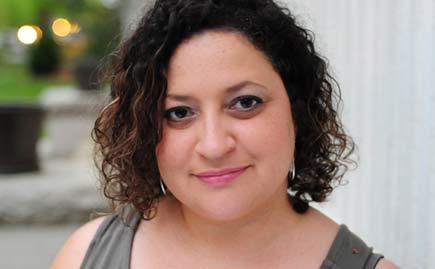- Membership
- Perks and Discounts
- Things To Do
- Resources
- News
- About
- Shop
Related Content
The Go-To Guy
July 24, 2024
When New York legalized recreational use of marijuana, lawyer Jeffrey Hoffman ’92 (’98 JD) found...
Read MoreImprov Meets the Boardroom
July 24, 2024
Peek into Greg Hohn’s classroom at Kenan-Flagler Business School on any given day, and more...
Read More56 Honored with Distinguished Professorships
June 18, 2024
The University has bestowed distinguished professorships to 56 faculty members since fall 2023. Among the...
Read More-
2024
-
2023
-
2022
-
2021
-
2020
-
2019
-
2018
-
2017
-
2016
-
2015
-
2014
-
2013
-
2012
-
2011
-
2010
-
2009
-
2008
-
2007
-
2006
-
2005
-
2004
- Academics and Athletics
- Admissions
- Alumni Profiles
- Alumni Recognition
- Around Town
- Arts
- Books
- Campus Profile
- Campus Safety
- Carolina Alumni Awards
- Carolina Alumni Leadership
- Carolina Alumni Programs and Outreach
- Carolina Alumni Reunions
- Carolina Alumni Review
- Celebrations
- Championships
- College and Costs
- Commencement
- Coronavirus
- Discovery
- Extracurricular
- Faculty
- Faculty Awards
- For the People
- Go Heels
- Greek Life
- Hark the Sounds
- Higher Education
- Homecoming
- In Class
- In Memoriam
- Innovation and Technology
- Issues
- Object Lesson
- On View
- Our Treescape
- Philanthropy
- Podcast
- Public Service
- Race and Reckoning
- Research
- Sexual Assault
- Silent Sam
- Sports
- Structures
- Student Achievement
- Students
- Timelines
- Tuition and Financial Aid
- UNC Libraries
- UNC’s History
- Undergraduate Spotlight
- University Achievements
- University Awards
- University Budget Issues
- University Development
- University Leadership
- University News
- University Rankings
- What We Do
- Who We Are
- Young Alumni
- Yours at Carolina
Author-Filmmaker Chosen to Lead Oral History Program
Posted on July 26, 2013
Malinda Maynor Lowery ’02 (MA, ’05 PhD)
Malinda Maynor Lowery ’02 (MA, ’05 PhD), a Lumbee Indian who has made documentary films on Native American issues and has written about the Lumbee tribe, is the new director of UNC’s highly regarded Southern Oral History Program.
Lowery, an associate professor of history who also holds an undergraduate degree from Harvard and a master’s from Stanford, is only the second director of the program started by Jacquelyn Dowd Hall in 1973.
The program was founded to preserve the voices of the Southern past. Housed at the Center for the Study of the American South, the SOHP has collected and analyzed more than 5,000 interviews from mill workers to civil rights leaders to future U.S. presidents.
Lowery is the author of Lumbee Indians in the Jim Crow South: Race, Identity, and the Making of a Nation. She has produced four documentary films, including the award-winning In the Light of Reverence, which aired on PBS in 2001. Two previous films, Real Indian and Sounds of Faith, examine Lumbee identity and culture, and the most recent is an online video for Native American survivors of domestic violence featuring the Lumbee and Eastern Band Cherokee tribes. Her current book project is a history of the Lumbee tribe for a general audience, forthcoming from UNC Press.
She has taught at Harvard, N.C. State, Duke and San Francisco State University.
Hall said she “could not be more thrilled by the great strides the SOHP has made under Interim Director Della Pollock or by the news that Malinda Lowery has agreed to take the helm. Professor Lowery is a brilliant scholar and visionary leader who is perfectly positioned to enhance the SOHP’s national reputation for collaboration, mentorship, public service, and scholarly and technical innovation while also taking the program in bold new directions.”
More online…
- The Hearing: The Southern Oral History Program was built on one woman’s determination that Carolina would build an academic enterprise, not just a repository. From the January/February 2012 Carolina Alumni Review, available online to Carolina Alumni members.
- Project Boosts Access to Personal Histories
June 2006 news report
© 2024 Carolina Alumni
